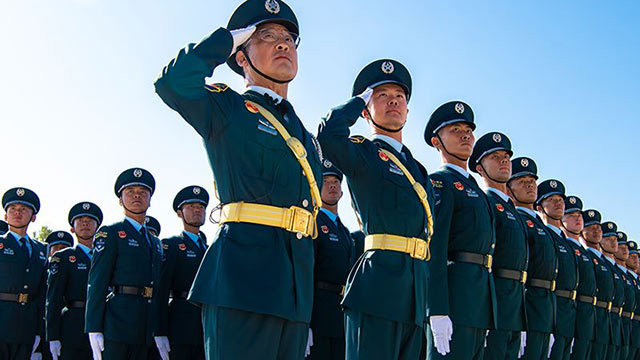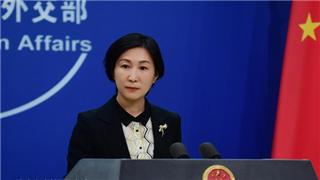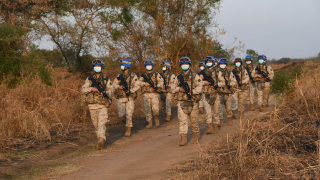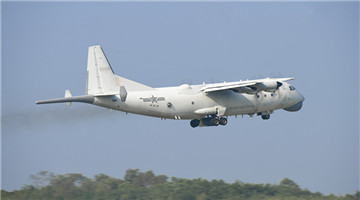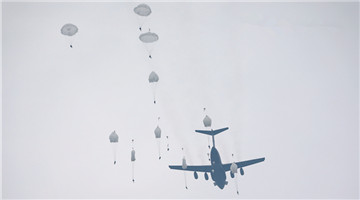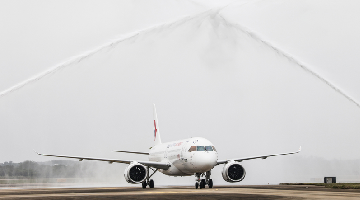By Bao Erwen, Liu Zan, et al.
The different regions across the world tend to show diverse trends in 2023, given the differences in geopolitical environment, economic development level and political and cultural traditions.
Asia-Pacific region to eliminate interference and seek cooperation
In the past year, the United States continued to vigorously promote the so-called Indo-Pacific Strategy in the Asia-Pacific region, and was obsessed with "great power competition". The Biden administration further wooed the US allies and a few regional countries to strengthen the "coterie" against China. In 2023, the Asia-Pacific region is expected to maintain a general trend of relatively stable security, strong economic growth and strong willingness to cooperate and develop.
At the same time, the region has to face the challenges posed by multiple interference forces and complex interference factors. Only by constantly strengthening their willingness to maintain regional stability and deepening their sincerity in mutual trust and exchanges can countries of the Asia-Pacific region build the cornerstone of regional security and take the lead in the global recovery.
Europe to have multiple tests ahead
The year 2023 will be a year of great uncertainty for Europe, and also a year of multiple tests for Europe. Since the escalation of the Russia-Ukraine crisis, the European Union (EU) has taken a stance of showing solidarity with the United States in response to the crisis and imposed nine rounds of sanctions on Russia out of its security concerns. However, Europe has also strongly felt the backbiting effect of sanctions against Russia – soaring energy prices, soaring prices and intensifying social conflicts.
In the new year, whether to continue to follow the United States and exert pressure on Russia, or to strengthen strategic autonomy, and seek to ease the confrontation between Russia and Europe, will be a test of wisdom and ability to the European leaders. In addition, China and the EU will still be the most important trading partners of each other for the European countries, so how to further promote China-EU relations tends to be more urgent.
US to have polarization decoupling declining
In preparation for the 2024 US presidential election in 2023, American politicians will inevitably be involved in rows and scandals, and also stimulate the confrontation between core voters of both parties, which will lead to further social cleavage in America. In addition, the recession of the US economy and its impact on the world will also be a common concern of the international community.
In the Asia-Pacific region, the United States has established a "quadrilateral mechanism", a trilateral security partnership called “AUKUS”, and proposed the Indo-Pacific Economic Framework (IPEF) to continue to promote the “decoupling or disruption of industrial and supply chains” with China. In Europe, the United States continuously fired up the Russia-Ukraine crisis, which has led to the protracted conflict between Russia and Ukraine, worsening the security situation in Europe and dealing a heavy blow to global peace and security. In 2023, if the United States continues to talk the talk, but not walk the walk, it will continue to create cleavage and make the international order even more chaotic.
Asia and Europe to move forward despite many variables
For Asian and European countries, the Russia-Ukraine crisis will still be the biggest sore point that they have to face in 2023, and the geopolitical uncertainty caused by the crisis may further increase. Han Lu, deputy director of the Eurasian Center of the China Institute of International Studies, believed that the West will not give up any opportunity to suppress and weaken Russia, and will do everything possible to engage in proxy war. The Russia-Ukraine conflict may come to a deadlock for a long time.
In the new year, despite the turbulent regional and global environment, Asian and European countries will continue to accelerate in cooperation with China. The China-Russia relations based on non-alliance, non-confrontation and non-targeting of any third party, remain solid and not provoked by interference. China will work with Asian and European countries to promote the high-quality implementation of the Belt and Road Initiative led by such projects as the China-Kyrgyzstan-Uzbekistan Railway Corridor and the Central Asia-China Gas Pipeline (Line D).
The Middle East to attract more worldwide attention
In 2023, the momentum of "general easing with local turbulence" in the Middle East may continue. Tang Zhichao, a research fellow of the Institute of West-Asian and African Studies of the Chinese Academy of Social Sciences, believed that the Middle East countries are highly possible to continue to maintain the momentum of peace and stability in 2023, though there are also hidden concerns, such as whether the Israeli Palestinian conflict will intensify as the right-wing religious Israeli government led by prime minister Benjamin Netanyahu takes office, and whether the negotiations on resuming the implementation of the Iran Nuclear Agreement can make a breakthrough.
In the new year, major powers will intensify their struggle for the Middle East. Wang Lincong, deputy director of the Institute of West-Asian and African Studies of the Chinese Academy of Social Sciences, believed that, against the backdrop of increasingly fierce strategic competition among major powers, major powers outside are speeding up their policy adjustment in the Middle East region in response to their global strategy. Countries including the United States, Europe, Russia, and India, are paying more attention to the Middle East.
Latin America to face tests led by left-wing regimes
In 2023, Latin America's economy is to face the challenge of effectively coping with external shocks, promoting growth, improving people's livelihood and alleviating poverty. In the past year, some Latin American countries fell into a debt crisis, accompanied by intensified inflation and soaring poverty rate, leading to intensified social conflicts. The Russia-Ukraine crisis has made the fragile Latin American economy even worse.
Zhou Mi, the deputy director and research fellow of the Institute of American and Oceania Study of the Chinese Academy of International Trade and Economic Cooperation, pointed out that Latin American countries should determine their own policy direction as soon as possible in the new year to attract investment, guide industrial transformation and upgrading, and strengthen regional economic coordination and integration.
Africa to seek stability and promote development
In 2023, Africa, as the continent with the largest number of developing countries, and endowed with rapid population growth, large market potential and abundant mineral and energy reserves, is expected to further resolve regional security risks and usher in economic recovery. Li Hongfeng, dean of the African Institute of Beijing Foreign Studies University, believed that Africa's own capacity to develop is the most critical link in solving the peace and security problems facing Africa.
In the new year, African economies are still facing many difficulties. Li Hongfeng pointed out that African countries are strengthening cooperation, striving to create new economic growth points in fields like digital technology and green economy, and mitigating the impact of adverse factors such as the COVID-19 epidemic, with a view to providing new impetus for economic recovery.
